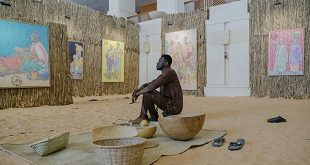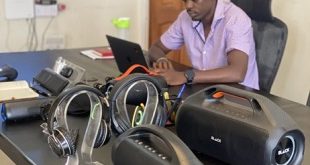But Nigeria has a secret weapon: democracy. Academics Daron Acemoglu and James Robinson, authors of `Why Nations Fail’, argue that authoritarian states that free up their economies get a short-term boost, but it doesn’t last because sustained success requires “inclusive capitalism” and democracy. That’s what is happening in China now. A wave of autocratic leaders post-Deng hasn’t been able to resist reasserting control of the economy and reversing many of his reforms. As they have done so, growth has cooled.
Nigeria’s democracy may be imperfect, but it’s democracy. Since the end of military rule in 1999, Nigeria has had five elections of increasing validity. In 2015, an opposition candidate won and came to power peacefully—no small achievement in sub-Saharan Africa. An entire generation of Nigerians has no memory of un-democratic government. It has a mostly free press and a vibrant civil society. Successive civilian governments have moved to protect democracy by reducing what has traditionally been the greatest threat: the military. They have deliberately coup-proofed the country by weakening the army, retiring its senior leaders and repositioning it as an internal security force that is scattered across the country. According to GlobalFirePower.com, the Nigerian army now ranks 44th out of 137 countries, which puts it somewhere between Peru and Denmark, and well behind South Africa.
Investors aren’t moving into Nigeria yet, but they’re watching. The talk used to be about the economic potential of the BRICS countries—Brazil, Russia, India, China and South Africa. Now it’s MINT—Mexico, Indonesia, Nigeria and Turkey. “Right now, Nigeria is seen as just too hard, but there’s a wall of money waiting to come in if it gets it right,” Aiyesimoju says. According to Orji, Nigeria is “just a few tweaks away” from being an attractive place for investors. “Look at South Korea,” he says. “All it took was changing one thing—the landholding law.” (That change allowed larger farms, which enabled farmers to invest in mechanisation.)
Jeff Schlapinski of the Emerging Markets Private Equity Association, an industry group for private capital in emerging markets, ticks off some of the changes that would make Nigeria attractive. “Corruption is a nonstarter for Western investors. And they don’t like uncertainty.”
It’s worth noting that, according to the Corruption Perceptions Index, Nigeria’s corruption problem is no worse than that of fellow oil state Russia and only slightly worse than China’s. The current president, Muhammadu Buhari, was elected on an anti-corruption campaign. Schlapinski says ending the policy of propping up the currency would be a good start.
Ready? Or Not?
The path to superpowerdom is not easy. The economy can be the catalyst, but it will take more than economic reform to create the Nigeria that Nigerians want. Sanusi believes it will require a change in society. Asked why he accepted the role of emir rather than going into politics, he says, “I didn’t accept it. I sought it out. I’m trying to change the entire worldview of a society. I can only do it from this role.”
There are also political issues. The country will need to navigate the same gauntlet and deal with the same maturity challenges as China, India and even the U.S. For example, keeping the country together. The U.S. faced 11 rebellions in its first 100 years. China has had rebellions in Tibet, Xinjiang and now Hong Kong. Experts have long predicted that Nigeria could break into pieces. As former U.S. Ambassador John Campbell explains, “The (Christian) South is exasperated with what they see as the North’s stubborn refusal to leave the Middle Ages and join the modern world.” But Nigerians scoff at the idea of breakup. Nigerian lawyer Sam Kargbo says, “Oil holds this country together. As long as there’s oil, no one’s going anywhere.” But there are too many geographic, ethnic and religious divisions to rule it out.
Politicians often exploit religion, both to stir up support for themselves and to distract voters from issues like the economy. Nigeria prides itself on being the most religious nation on earth. In 2014, a man was sent to a mental institution for admitting to being an atheist. Nigeria has a raft of traditional religions, like Islam, Protestant Christianity and Catholicism. It also has a booming “prosperity gospel” sector complete with rock star pastors who provide salvation-tainment. Just a few miles from the national mosque in the capital is the Dunamis Glory Dome, which has the world’s largest auditorium, capable of seating 100,000. At least it’s the largest until this year, when the Hand of God Cathedral in the Rivers state is finished.
Nigeria will also be forced to deal with thorny social issues like pollution, climate change and inclusivity. Many prominent Nigerian women are in business and government, but women overall do not have the same rights and opportunities as men. In rural areas, they are often the target of violence. In Borno state last year, herdsmen gang-raped five girls. Police dropped the case, and many believe they were paid off, according to Rebecca Dali, who in 2017 won a U.N. Sergio Vieira de Mello Award for her humanitarian work. CESDI’s Yashe, who lives in Borno, says Nigeria is three to five generations behind the U.S. in terms of women’s rights. She’s talking about Lagos. It will take longer in the North, she notes.
But Sanusi says things are already starting to change. “A generation ago, the emir would have told his daughter who to marry. But my daughter has been to school. For her, things are different.” Still, he says, Africa isn’t “ready” to take on LGBT rights.
Nigeria could take off. But will it? And if so, when? It’s hard to say, of course. Whether it finally breaks through will come down to leadership. The president, Buhari, is not naturally inclined to make the economic policy changes that would jump-start growth.
As Judd Devermont, director of the Africa Program at the Center for Strategic and International Studies, says, “Buhari has a retrograde and unorthodox view of how to run a modern economy. Import substitution. Currency manipulation. Protectionism.”
A senior government official has a more positive assessment: “It’s a matter of priorities. Buhari’s first trying to mend the social fabric of a nation.” Either way, Buhari will likely step down in 2023. As one expert says, “It’s hard to know what happens next. Nigerian politics are like a snow globe.”
Nigeria could become the next China. It may not. It may be something in between. My granddaughter may be writing the same article 50 years from now. Maybe Nigeria will always be the country of tomorrow.
Yes, Nigeria is overpopulated and poor and loud and dirty and unsafe. It’s not the Africa of travel magazine spreads, with people in open-topped Land Cruisers snapping pictures of lions as a red sun dips behind an acacia tree. But there’s something about Nigeria. An it factor. A throbbing energy that is palpable. An exceptionally high self-regard and belief in its own exceptionalism. In Nigerian-ness. As one of my sources says, “We like to beat our chests.” I would not bet against it.
****
Sam Hill is a Newsweek contributor, best-selling author and consultant. He wrote about Sierra Leone forNewsweekthis past October.
 The Independent Uganda: You get the Truth we Pay the Price
The Independent Uganda: You get the Truth we Pay the Price

